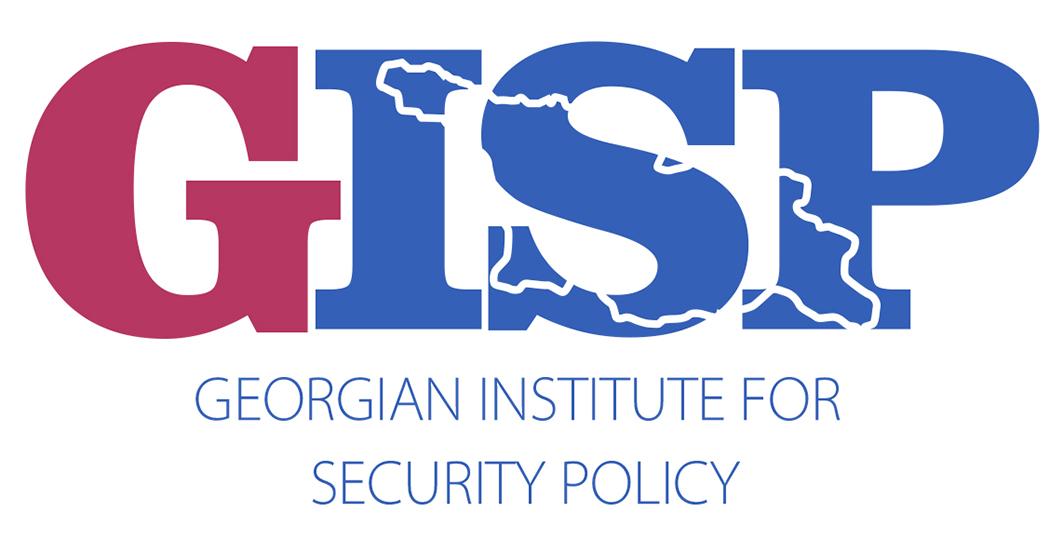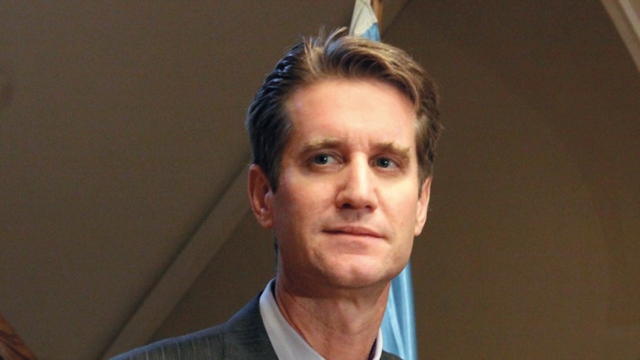Bryza: NATO Member States Don’t Support Rasmussen’s Idea Yet, But I Hope They Will
Interview
In the aftermath of the NATO Parliamentary Assembly’s Autumn Session in London, which saw, among the six resolutions adopted, one that appealed for Alliance leaders to, yet again, reassure Georgia of their ongoing commitment to the Open Door Policy towards Georgia, the Georgian Institute for Security Policy spoke to Former US diplomat Matthew Bryza in another edition of its "Talking NATO for Georgia" interview series.
Based on your assessment of the Georgia conflict situation, what room would you say there is to maneuver geopolitically?
I think there’s little that can be done to force the issue. I mean, Russia is the military occupier of South Ossetia and Abkhazia; we know that Abkhazians are generally not so comfortable with Russia lording it over them. The residents of the Tskhinvali region are somewhat more pliable and perhaps over time there can be a political dynamic in Abkhazia that would pressure the Russian occupation, but I don’t see any signs of Russians relieving their pressure and the same in Tskhinvali: Russians are there to stay. EU member states are not willing to push the issue with the Russians, so over the longer term I think that Rasmussen’s idea is a great one to change the situation: it does not get the separated regions back into Georgia but it does give Georgia the security that it needs and integration into the Alliance. It’s imaginative but not unprecedented. In Cyprus, very similar things have happened, with the EU accepting the entire island of Cyprus, but suspending the EU body of law in the north. Legally all the island is part of the EU, and we’re talking about the same thing for Abkhazia and South Ossetia; technically and legally, we can consider all regions becoming part of NATO, but Article 5 would be suspended in those territories. There’s clearly a precedent for it.
Rasmussen actually mentioned the example of Germany, and lots of people got worried this might mean Georgia having to recognize these occupied territories as sovereign countries. Do you see this as a potential risk?
No. Certainly, there will be some European politicians who will keep pressure on Georgia in the future to recognize South Ossetia and Abkhazia as independent countries because they have either a special relationship with Russia or they don’t appreciate history and simply want to be quiet rather than see justice done in Georgia. Yet, I think Georgia’s destiny is much more in its own hands than your question suggests. What happened with Germany is different because Germany was essentially responsible for two world wars and a holocaust. Plus, Soviets at that time had so much influence and it was a unique situation. As a counter example, I would, once again, look at Cyprus. There’s no way in the world Turkey and Turkish Cypriots are going to recognize the Greek Cypriot State in the absence of a comprehensive solution in which the Turkish Cypriots' political rights are fully protected; so, there’s no reason why Georgia would ever have to give in.
Yet, the current NATO administration are rather reluctant to even consider or discuss the issue. How can this kind of reluctance be explained?
When I was official, I was limited in how far I could deviate from established policy in my public statements. This is something that cannot be done by NATO official unless the member states decide this is a policy, and that has not happened yet. They have to be very careful to avoid treading on the toes of member states, especially the USA. But if President Trump starts talking about this proposal, or Angela Merkel or President Macron, then you’ll see the Secretary General and others echoing it much more openly. Member states of NATO have to make this decision first; the NATO staff don’t drive policy, they follow the member states; the member states are not supporting that idea yet, but I hope they will.
If Georgia were to say it is open to discussing it, could it force NATO’s hand?
You have to convince major member states, first of all the US, that this makes sense. Georgia should quietly discuss this idea behind closed doors, first and foremost with Washington, and then gauge whether the US will be willing to lead the charge. At the 2008 Bucharest Summit, I know from my own conversations that President Bush pushed very hard for Georgia to receive MAP, but was blocked by Chancellor Merkel, so, the same thing could happen again. Germans have always been the most reluctant among the major NATO allies to confront Russia and it’s understandable given Germany’s dramatic history. When he was foreign minister, current German President Steinmaier was very reluctant to pursue any policy that would look like confrontation with Russia. In spring of 2008, we developed a plan in Washington to give Georgia a way out of the trap that President Putin was trying to set. The trap was to leave Saakashvili with no good choices: between acquiescing to Russia taking control of Abkhazia and South Ossetia or going to war with Russia. We decided we needed to come up with another plan and we designed a whole set of measures that included having EU police at Kodori Valley, a whole series of things. But in the end, the Germans, who were chairing the “friends of Georgia” group, took out any provision that might be objected to by Russia, leaving all but nothing.
Don’t you think it ironic that now Steinmeier’s name is associated with the formula in Ukraine that is also viewed as distinctly pro-Russian?
I find it incredibly ironic and almost tragically predictable. To me, it’s a maddening response within EU foreign policy: anytime there’s a conflict, an armed conflict in particular, they call for dialogue, and by calling for dialogue what they are doing is saying that nobody is guilty, each side shares some blame and in the case of Georgia in 2008, the blame is on one side: Russia provoked it, Russia launched the attack. I’ll believe it till the day I die and Georgia unfortunately responded in a way that ended up being detrimental to its interests.
Foreign Minister Lavrov was recently asked what Russia will do if Georgia becomes a member of NATO. He claimed there would be no war. Should we believe him?
I don’t think Russia would use force, quite the opposite: if it’s clear that Georgia is inevitably, unstoppably becoming part of NATO, Russia would do nothing and that’s exactly why the Bucharest Summit was such a terrible event because instead of saying Georgia gets MAP, it’s going to be a member of NATO, we opted for ambiguity, and that was a red flag to President Putin: Act now, or will be too late. And he did. But once it is clear that Georgia can be a member of NATO, I think Russia will cease to be a military threat.
Many hailed the recent meeting between the foreign ministers of Russia and Georgia as a very positive step. What’s your take?
It’s a normal state of affairs that the foreign ministers of Russia and Georgia talk to each other; Russia is a neighbor to Georgia, Russia has a very large economic market, in general life is better for Georgians if they get along economically with Russia. But that meeting in no way brings any sort of breakthrough in the political or security relationships between the two countries as long as Russia occupies so much Georgian territory. It’s impossible to envisage a normal relationship between the two countries.
By Vazha Tavberidze
Image source: Turkhan Kerimov (RFE/EL)













